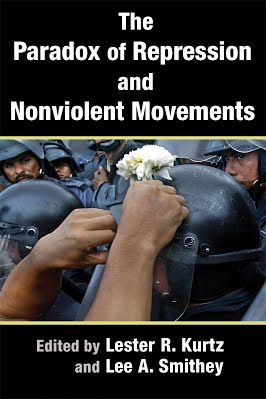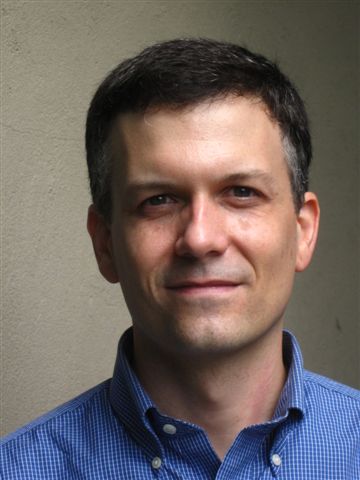Webinar Content
Introduction of Speakers: 00:00 – 5:19
Presentation: 5:20 – 33:29
Questions and Answers: 33:30 – 1:02:26
Webinar Summary
 From Bull Connors’ dogs and fire hoses attacking U.S. civil rights demonstrators to the massacre at Amritsar in colonial India and the shooting of nonviolent demonstrators in Soviet Tblisi in 1990, the use of coercive force often backfires. Rather than undermining resistance, repression often fuels popular movements. When authorities respond to nonviolent people power with intimidation, coercion, and violence, they often undercut their own legitimacy, precipitating significant reforms or regime overthrow.
From Bull Connors’ dogs and fire hoses attacking U.S. civil rights demonstrators to the massacre at Amritsar in colonial India and the shooting of nonviolent demonstrators in Soviet Tblisi in 1990, the use of coercive force often backfires. Rather than undermining resistance, repression often fuels popular movements. When authorities respond to nonviolent people power with intimidation, coercion, and violence, they often undercut their own legitimacy, precipitating significant reforms or regime overthrow.
Activists in a wide range of movements have engaged in nonviolent tactics of “repression management” that can turn the potentially negative consequences of repression to their advantage. The Paradox of Repression and Nonviolent Movements book, edited by our webinar presenters, brings together scholars and activists to address multiple dimensions of this phenomenon, which Gene Sharp called “political jiu jitsu,” including the potential for nonviolent strategy to raise the likelihood that repression will cost those who use it.
In this webinar, we will share some of the key strategic insights and challenges identified by the authors of the book. As editors of the book, Lee and Les hope to share cover some of the ground covered in greater detail in the book. Research for this book was supported by ICNC.
Presented by Lester Kurtz and Lee Smithey
Thursday, November 15, 2018
12 pm to 1 pm (EST-US)
About the Presenters:
Lester Kurtz is professor of public sociology at George Mason University, where he teaches peace and conflict studies, comparative sociology of religion, and social theory. He holds a Master’s in Religion from Yale and a Ph.D. in Sociology from the University of Chicago. He is the editor of the Encyclopedia of Violence, Peace and Conflict (3 volumes Elsevier), The Warrior and the Pacifist (Routledge), co-editor of Women, War and Violence (2 volumes, Praeger), Nonviolent Social Movements (Blackwell’s), and The Web of Violence (U. of Illinois Press) as well as author of books and articles including Gods in the Global Village (Pine Forge/Sage), The Politics of Heresy (U. of California Press), Evaluating Chicago Sociology, and The Nuclear Cage (Prentice-Hall). He is currently working on a book on Gandhi and has taught at the University of Texas-Austin, the University of Chicago, Northwestern University, and Tunghai University. He has lectured in Europe, Asia, Africa, and North America and served as chair of the Peace Studies Association and the Peace, War, and Social Conflict Section of the American Sociological Association, which awarded him its Robin Williams Distinguished Career Award. He is a Distinguished Research Fellow at the Institute of Nanjing Massacre History and International Peace.
Lee Smithey serves as Coordinator of the Peace and Conflict Studies program at Swarthmore College in Swarthmore, Pennsylvania. He is an Associate Professor in the college’s Department of Sociology and Anthropology, where he studies social conflict and social movements, especially ethnopolitical conflict and nonviolent conflict methods. He has focused much of his work on conflict transformation in Northern Ireland. His book, Unionists, Loyalists, and Conflict Transformation in Northern Ireland (Oxford University Press), was launched at the Northern Ireland Assembly and won the 2012 Donald Murphy Book Prize for Distinguished First Book from the American Conference for Irish Studies. He is a Co-Primary Investigator of the Mural Mapping Project, a longitudinal and geo-spatial study of murals and public art in West Belfast and the Greater Shankill Road area. He has served as Chair of the Peace, War, and Social Conflict section of the American Sociological Association.
Additional Online Resources
Book Wepage: The Paradox of Repression and Nonviolent Movements
Minds of the Movement blog post: May the Excessive force Be With You: How Activists Can Manage Repression To Win
Waging Nonviolence blog post: How Repression Can Fuel A Movement
Global Nonviolent Action Database: Paradox of Repression Cases

